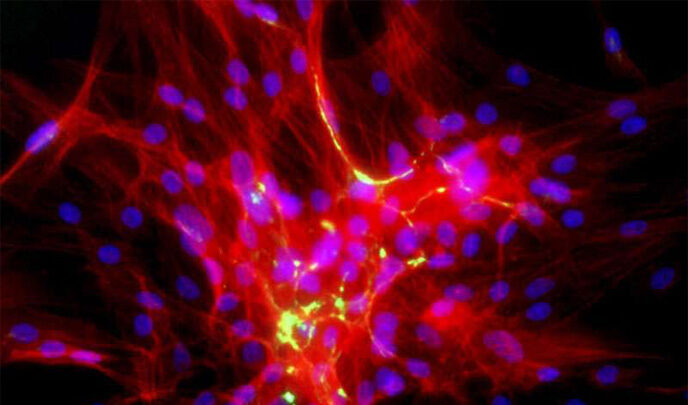
Survey finds LGBT health disparities in Wisconsin
Findings from the Survey of the Health of Wisconsin (SHOW), a population-based health examination survey, show that there are disparities in health outcomes, health care access and quality among LGBT individuals in Wisconsin.

‘Bad guy’ fibrocytes could help rebuild damaged tissue
Could a blood cell type responsible for scarring and diseases such as pulmonary fibrosis be repurposed to help engineer healthy tissue?

Researchers identify genes associated with facial beauty
Researchers have discovered that an individual’s sex determines where in the genome are genes that affect perceived facial attractiveness.

Study shows disparities in contraceptive care for sexual-minority women
Young sexual-minority women frequently encounter stigma or misinformation in health care settings that can compromise their ability to get the contraception they need, according to a new study from the Department of Obstetrics and Gynecology at the University of Wisconsin School of Medicine and Public Health.

UW program for advanced cell therapy launches first clinical trial
For the first time in Wisconsin, a research team will test a personalized cell therapy to treat a common and serious complication in bone-marrow transplant patients.

Personalized in vitro model enables drug screening for kidney cancer
One way to treat the most common type of kidney cancer is to use antiangiogenic drugs to cut off the blood supply to the tumors, but patients respond differently to the drugs, and choosing the wrong one can make the cancer grow faster.

Isthmus Project picked for name of new UW Health innovation hub
UW Health is proud to announce the name of its new innovation hub, and it has a local flavor.

UW team shows progress in search for new antibiotics
Collecting bugs across the globe is paying off for a multidisciplinary research team at the University of Wisconsin-Madison.

Thomas Mackie to lead new joint innovation initiative between UW Health and School of Medicine and Public Health
UW Health has selected Thomas “Rock” Mackie to be the inaugural leader of the health system’s innovation initiative, which it is pursuing in partnership with the UW School of Medicine and Public Health.

First Carbone Cancer Center patient receives experimental therapy to prevent infections during chemotherapy
Michael Toelle, superintendent of the Tomorrow River Schools, recently became the first patient at the University of Wisconsin Carbone Cancer Center to be infused with an experimental cellular therapy designed to prevent infections in leukemia patients.

Wisconsin researchers well-represented at international radiation oncology conference
The 60th annual meeting of the American Society for Radiation Oncology (ASTRO), the world’s premier radiation oncology society, got underway this week in San Antonio, Texas, with a strong Wisconsin presence.

UW study: Inherited brain pathway underlies the risk for anxiety and depression
In studies of young rhesus monkeys, researchers from the University of Wisconsin Department of Psychiatry have discovered brain pathways that underlie children’s vulnerability to develop anxiety and depression later in life.